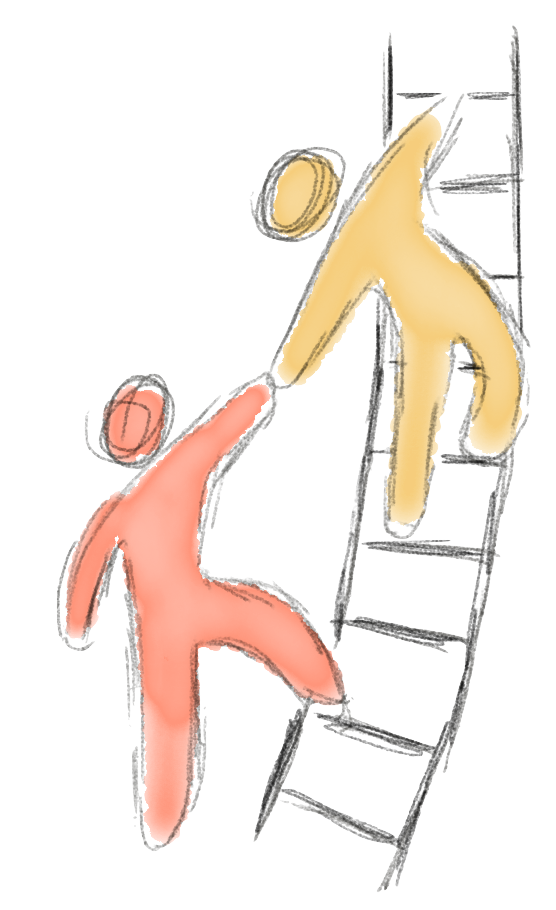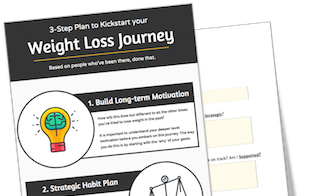How to Stop Feeling Insecure about Your Body
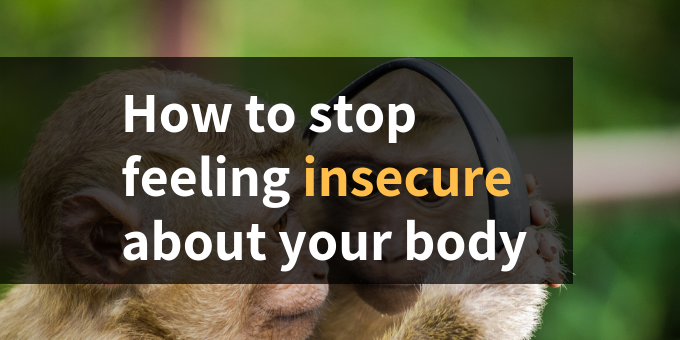
A national survey suggested that 46 per cent of Australians are dissatisfied with their body shape.
That's big number.
Before we get into addressing body image issues, I want you to think of the implications this can have on your every day life:
- You get up and don't feel like wearing your favourite clothes.
- You go to work and don't speak out your ideas with confidence (because you feel you'll get judged).
- You come home to your partner and have arguments (caused by underlying insecurities).
- You avoid social activities with your friends such as hiking or day outs (because you're afraid you won't be able to keep up).
These are just some examples of how a negative body image can affect your daily life.
Your body image has far more implications than what you may think
I talk to people who are going through this on an ongoing basis.
Even those who have lost significant amount of weight, still have insecurities about their body.
In this post, I want to share with you some strategies that will help you tackle the underlying cause of body image issues.
If you're here, you are most likely already working the physical side of things.
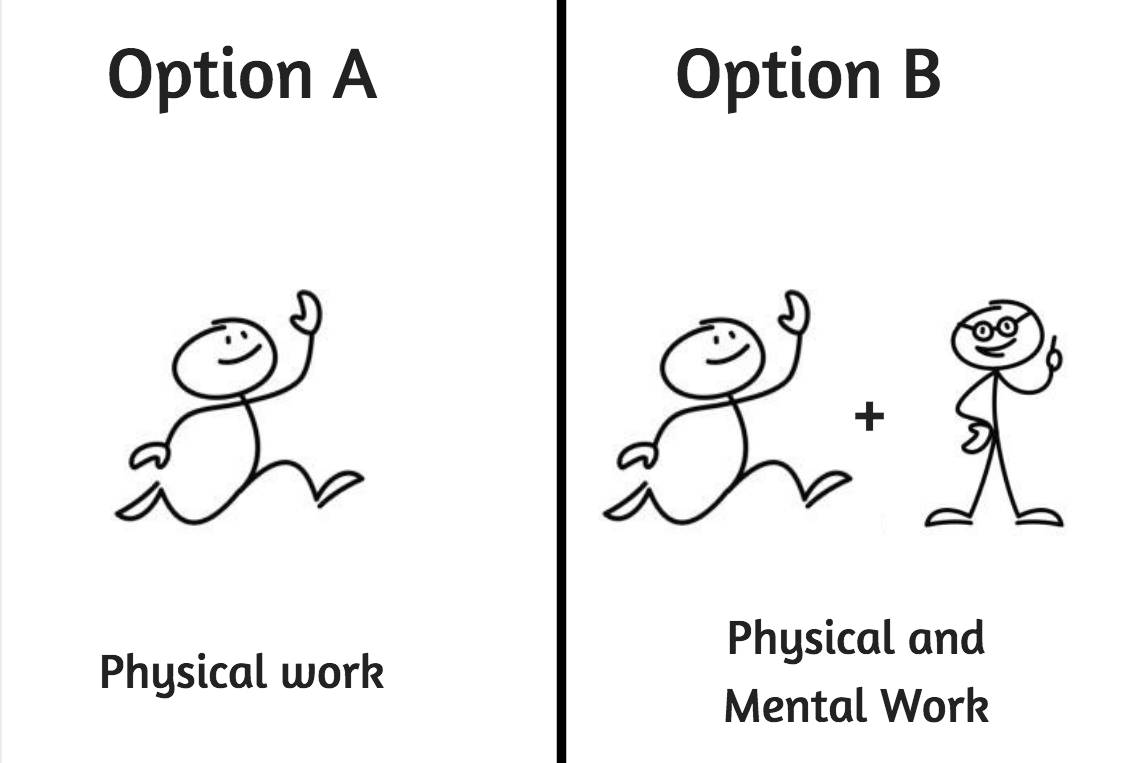
When it comes to creating a positive body image, physical work is not enough.
You need to create mindset transformation alongside physical transformation.
The traditional thinking
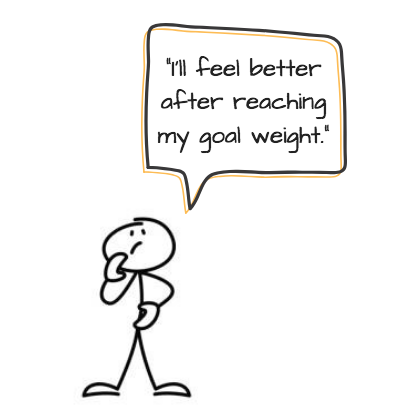
If you think you'll be happy only once you reach your goals, I would ask you to reconsider this.
Many people I work with have already lost a significant amount of weight.
Yet they are still not happy with the way that their body looks.
Even though on the outside, people are amazed with their physical transformation.
On the inside, the same person feels insecure about their body.
No matter how much physical progress one makes, we can still have a tendency to seek flaws within our bodies.
Hitting a certain target or goal does not necessarily guarantee that you'll end up feeling good about your body.
The relationship you have with your body goes far beyond what you see in the mirror.
Key Insight
Looking good on the outside does not guarantee you'll feel good inside.
The inner workings of your body image
Your body image is the perception you have about your body.
This perception may be distorted depending on your thoughts, imagination and emotions.
Most people think they have full freedom on how they wish to perceive things.
However, there are many things in our environment that influence our perceptions and desires.
For example:
If you have been brought up in a developed Western country, you may have a childhood dream of buying a Ferrari one day (because you think they're super cool).
However, let's say you are brought up in a remote village in the Pacific without the influence of modern media.
Your dream in that case may be to grow up and own your own animal stock (because that's the measure of wealth in the village).

The reason I share this example is because I want you to see that what you desire is largely dictated by social conditioning.
Think about it for a second.
What you judge as good or bad depends on what you see while growing up.
One person's upbringing can completely change what they may desire when they grow up.
How is this related to your body image?
What you perceive as the 'dream body' has likely been influenced by the culture you've been brought up in.
It's an unconscious desire.
It's not necessarily something you thought up by yourself.
It's been influenced by other things around you.
That unconscious desire has now translated to an image of the 'perfect body' in your head.
And as long as your body doesn't match that image in your head - you'll feel insecure about your body.
What to do about your unconscious desire?
If you want to stop judging your body, there is one important thing you need to do before anything else:
You need to stop judging other people's bodies.
Why is this important?
You are constantly judging things as good or bad (based on your unconscious desires).
And we do this subtly, sometimes not even realising it.
As soon as you start judging others, you end up creating a judgment for yourself as well.
If you think someone is 'fat', you'll judge yourself every time you look or feel 'fat'.
If you think someone is 'too skinny', you may question yourself if you're getting 'too skinny'.
The thing I want you to realise that every time you're judging externally, you're creating an internal judgment for yourself.
And it is very common and natural for most human beings to judge.
To rewire yourself, I encourage you to take a 30-day No Judgment challenge.
Key Insight
Our judgment of others is usually an extension of self-judgment.
How the challenge works
You set an intention each day for 30 days to not judge other people's body shape or size.
The point of this exercise to catch yourself every time you're judging.
Don't judge yourself for judging (you'll soon realise how much you were actually judging).
Every time you judge, simply be curious on why you judged and what does it reveal about your unconscious desires.
Over time, you'll get better at not judging others and accepting different types of body shapes.
This acceptance will shift into your own perception of yourself.
Trust me, you will still judge during the challenge.
But the key part is to catch yourself doing it, so it is not unconscious any more.
Bonus Steps
Let's say you get good at not judging others.
This will go a long way in reducing insecurities within yourself.
However, there's two more things that I encourage you to take (I'll go into detail in separate blog posts):
1. Create a gratitude journal
In essence, feeling insecure about your body is a form of feeling ungrateful.
The exact opposite of this is gratitude.
If you can bring in gratitude ritual in your life, you start rewiring your brain to look for things that bring joy to you.
I encourage you to write three things you are grateful for about your body and your life.
(I have next to my bedside table for easy access before I sleep.)
2. Build a spiritual practice
Spirituality means to recognise that your life energy is more than your body and mind.
Things like meditation allows you to distance between you and your mind.
Interestingly, it is this very distance that allows meditation to help with brain performance.
My personal spiritual practice is Shambhavi Mahamudra.
I encourage you to find your own practice that resonates with you.
When you realise you are more than your body and mind, it is a lot easier to let go of your psychological and body attachments.
Quick Summary
- Body image issues can affect our lives more than we think.
- We judge other people's bodies more than we think.
- Judgment has a negative influence on our own image (more than we think).
- Start the 30-day no judgment challenge to become aware of your unconscious desires.
- Build a gratitude journal and spiritual practice to advance yourself.

Unsure where to start?
This worksheet will help you come up with an action plan right now!
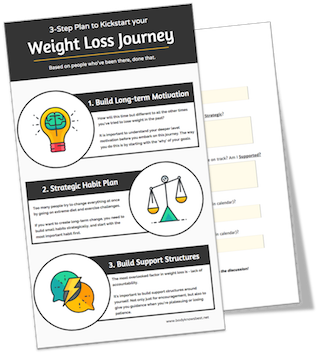
The 3-Step Plan to Kickstart your Weight Loss Journey
About the Author - Kern Kapoor
Kern's interest in psychology and human behaviour lead him to lose 34kg. He is a Certified Nutrition Coach (Pn2) and is currently on a mission is to create a community of 10,000 people who have undergone long-term body transformation.
If you'd like some one-on-one help with your weight loss goals, get in touch with him at kern@bodyknowsbest.net.

